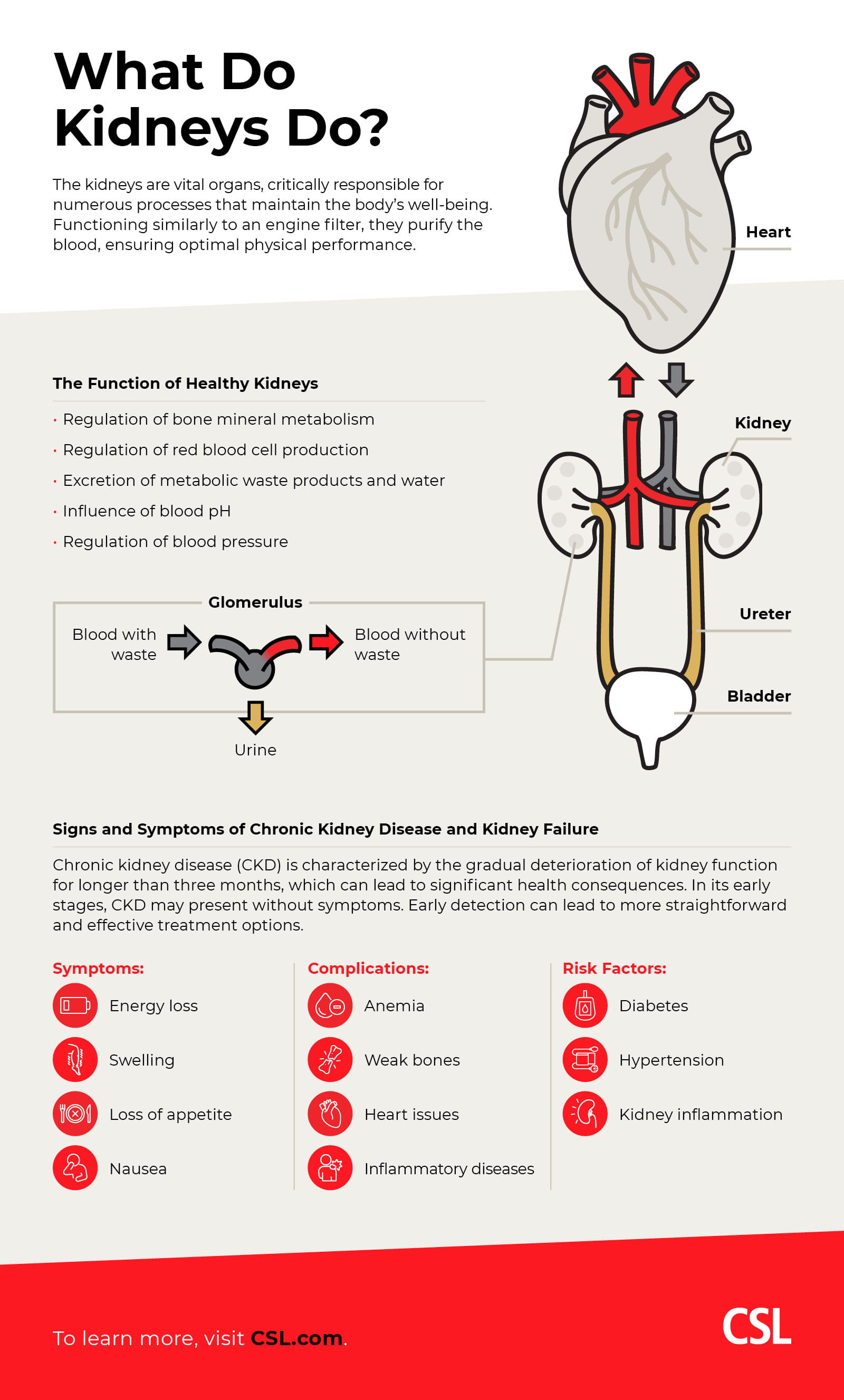Nephrology is the specialty that deals with the diagnosis and treatment of kidney diseases. Doctors who focus on kidney care are called nephrologists. They diagnose kidney diseases and provide treatments, including renal replacement therapy.
Renal is another word used in medicine when talking about the kidneys, two vital organs that sit on either side of the spine just below the rib cage.
TAKE A QUIZ ABOUT KIDNEY FUNCTION AND CHRONIC KIDNEY DISEASE
How the kidneys work
Each kidney is only about the size of an adult fist, but kidneys are responsible for a host of complex and vital processes to keep the body in balance. They’re part of the urinary system and act a little like an engine filter, cleaning the blood for optimum performance.
Healthy kidneys remove acid that is produced by the cells of your body and maintain a healthy balance of water, salts and minerals – such as sodium, calcium, phosphorus, and potassium – in your blood, according to the U.S. National Institutes of Health.
According to the National Kidney Foundation, healthy kidneys also:
- Remove waste from blood after digestion, muscle activity and exposure to chemicals or medications.
- Make renin, which the body uses to help manage your blood pressure.
- Produce an essential hormone called erythropoietin, which prompts the body to make red blood cells.
- Make an active form of vitamin D, needed for bone health and other biological processes.
What is chronic kidney disease (CKD)?
When a person’s kidneys don't work well for longer than three months, doctors call it chronic kidney disease. A patient might not have symptoms in the early stages, but if detected early, the condition may be simpler to treat.
CKD affects up to 13% of the global population and, as the condition worsens, there are additional risks including:
- High levels of waste in the blood, which can make a person feel nauseous
- Complications such as high blood pressure, anemia, weak bones, poor nutritional health and nerve damage
- Heart issues and inflammatory diseases, such as inflammation of blood vessels known as vasculitis
Chronic kidney disease patients, especially for those receiving dialysis, also can experience associated symptoms, like CKD-associated Pruritis (CKD-aP) – itchy skin. The itching can disrupt daily life, contribute to poor sleep and other problems, including depression according to Kidney.org. The intense itching can lead to excessive scratching, which puts the patient at risk of infections.
What causes CKD?
Diabetes (types 1 and 2) and high blood pressure are the most common culprits in adults. High blood sugar levels over time can harm kidneys. And high blood pressure creates wear and tear on blood vessels, including those in the kidneys, therefore decreasing renal ability to filter the blood properly.
Check out the infographic below to learn more about kidney function.
Visit nephrology on CSL.com to learn how CSL Vifor is working to improve the lives of patients.



